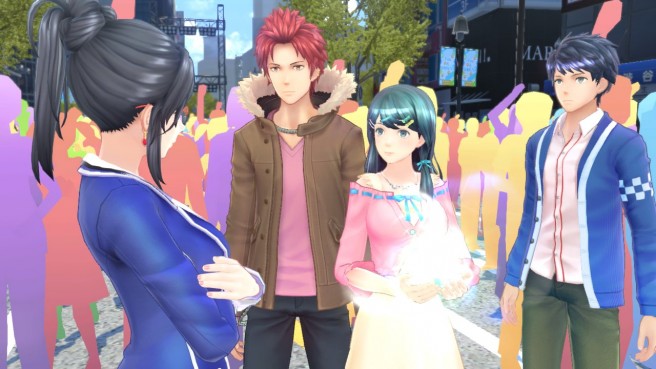Tokyo Mirage Sessions #FE devs on adapting for the west, Atlus localization, Japanese-only voices
Posted on June 28, 2016 by Brian(@NE_Brian) in News, Wii U
Before Tokyo Mirage Sessions #FE landed in the states, GameSpot caught up with Atlus producer Shinjiro Takata and Nintendo designer Hitoshi Yamagami. The two talked about topics such as localization – including Atlus handling the game and keeping the voices in Japanese – as well as what made Nintendo and Wii U a good fit for the project.
Head past the break for some of Takata and Yamagami’s responses. GameSpot’s full interview can be read here.
On adapting games for the west…
Hitoshi Yamagami: Each country has its unique culture and taste. There are times when common sense in one country can be thoughtlessness in another. However, if we create a game with only that common sense that causes no problems in any of the countries, it can be a very boring game.
From among the various complex tastes of people worldwide, the developer selects settings and characters that appeal to as many people as possible. That being said, it is true that as we build up the settings and characters, we are sometimes obliged to change something in part of the game. This optimization does not destroy the identity of what we as developers want to convey. Developers would not accept such drastic changes. The changes made during localization are optimizations intended to bring to as many customers as possible the things that we want to convey. No major changes are made that would change what we want to convey.
On letting Atlus handle the localization instead of the Treehouse…
Yamagami: The games that Atlus translates bring out the atmosphere of Atlus very well. The games that Nintendo translates bring out the atmosphere of Nintendo. With the text of this title, we wanted to bring out the atmosphere of the games that Atlus creates, as much as possible. That is why we asked Atlus to do the work of translating the text. The Development Team is convinced that fans in the English-speaking world will find the game full of expressions typical of Atlus games.
On not localizing the voice acting…
Yamagami: That is because the essence of this game lies in songs. When you listen to a song from overseas, people mostly listen to it in the original language. People who listen to Japanese music overseas would most likely hear it in the original Japanese. In this title, the voice actors who sing the songs also do the voices of the characters. (The voice and the songs sung by a character are played by the same voice actor.) In order to take full advantage of this characteristic, we thought it better not to dub the voices. Of course, we could look for a song that an English-speaking voice actor could sing, and use the same concept to localize it, but that would delay the launch by another year. The result of overall consideration by the development team was to adopt the format of: Japanese voice, Japanese song, and English subtitling.
On what made Wii U and Nintendo the best partners for this kind of game…
Takata: We heard from Mr. Yamagami of Nintendo about this collaboration between Fire Emblem and Atlus. There are many in Atlus who are fans of Fire Emblem. So we were happy to take on the challenge, and started the project. We prepared plans, and after several iterations, made it into reality. The choice of hardware was already fixed by this time. The original Fire Emblem by INTELLIGENT SYSTEMS was on the 3DS, so we wanted to seek out a different expression on the Wii U.
